DUCSU polls 2025: Democracy’s dress rehearsal?
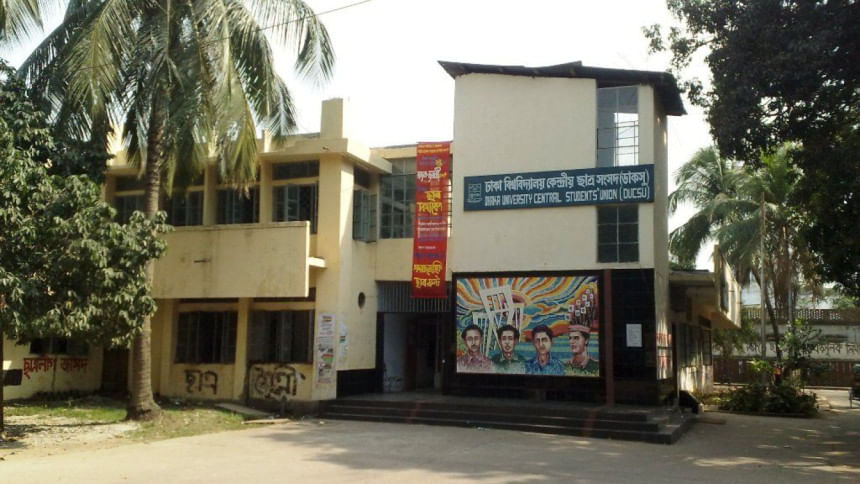
The timing of the Dhaka University Central Students' Union (DUCSU) election ahead of the general polls poses an intriguing dilemma for a university that has been the cradle of our national conscience. On the one hand, a student union election in the country's largest and oldest public university, which has both witnessed and participated in the majority of political changeovers here, can become a proxy battle between national parties. The volatile political situation at present can be affected by the outcome, as the DUCSU poll results can either energise or demoralise the parent parties of some of the participating student bodies just months before the national electoral campaigns are set to begin. A recent data survey that finds 48.5 percent of voters undecided before the national election—in which the BNP, host of Bangladesh Jatiotabadi Chatradal (JCD), maintains a slim edge over Jamaat-e-Islami, undeclared patron of Islami Chhatra Shibir—makes the issue even more critical. Dubbed as the "second parliament," the results of DUCSU polls have the potential to spread beyond the university gates and change the national electoral dynamics.
On the other hand, we can view the holding of DUCSU polls (followed by JUCSU and RUCSU polls in the same month) as a step towards rebuilding democracy from the foundation. The dictatorial democracy that sprouted over the last few decades made Bangladeshi politics a top-down affair. National parties have become accustomed to using student politics as a platform for recruiting followers instead of nurturing independent leadership. Seen thus far, a DUCSU election before the parliamentary polls is a symbolic as well as practical opportunity to demonstrate the country's democratic revival.
The third dimension of the dilemma touches upon an ensuing debate over "overt" and "covert" politics. During the July uprising, there was a general consensus to decouple campus politics from their national hosts. However, after the interim government was formed, many student bodies started wearing their party badges—some more prominently than the others. Thus, the possibility of a shift in the political landscape appeared bleak. The administration's contradictory statements on the party affiliation of student politics did not help the situation either. DU's female students responded to this mixed signal by storming out of their dorms in the middle of the night on July 17, mirroring their rebellious action from last year while demanding a complete ban on hall-level politics. The vice-chancellor responded by promising a "controlled" regulatory policy at the hall level. The proctor went further to declare halls as party politics-free zones. JCD, the largest student body at the moment, and some of the left-leaning organisations interpreted these declarations as attempts at depoliticisation.
The issue surfaced when JCD announced committees for all the residential halls at DU. When general students protested the results, JCD suspected foul play. It felt that the general students had been instigated by the "underground party" who was strategically camouflaged within the fallen regime. The ostracised right-wing outfit redirected its energies into welfare campaigns such as offering mentoring and coaching to incoming students, distributing textbooks, and arranging affordable meals and drinkable water as well as medical services. This quiet, service-orientated activism in the residential halls has given it influence where overt politics is notorious for bullying and ragging of students, particularly in the common rooms. So their covert peers have outwitted the overt bodies, who perceive the electoral field as anything but level. The fact that JCD has yet to submit its panel nomination has cast doubt on the holding of the election on September 9.
The ideological clash between the overt and the covert became a generational face-off over the question of 1971. The university's syndicate in its June meeting amended the DUCSU constitution to symbolically align past and recent struggles by including "July 2024 and other democratic movements" alongside its previously stated objective of upholding the Liberation War of 1971. However, once Shibir presented some convicted Pakistani collaborators of 1971 as "victims of Hasina's judicial wrongdoings," it reopened old wounds. While the new generation of Shibir activists has consistently tried to present itself as a modern organisation, their canonisation of the collaborators proved diabolical. Tension has already emerged as the left-leaning parties took a strong stance to protect the ideals of 1971.
Thus, DUCSU polls 2025, which is supposed to be a fresh start for student politics in a post-uprising Bangladesh, has already entered an uncanny site threatened by the conflicted, compromised, and choreographed politics of the past. We are growing more unsure about who holds the true power. Underneath the surface, there is also the allegation of the student group belonging to the fallen Awami League mobilising.
The inclusion of four new posts in DUCSU—covering research, career development, health and environment, and human rights—is a welcome change. Those participating in the election should focus on these new areas to diversify students' career prospects and interests. To take advantage of the nation's demographic dividend, there is no other option but to upskill and reskill our young generation. DUCSU can initiate that capacity-building movement just like the way it led other sociopolitical movements—from the Language Movement in 1952, to the Liberation War in 1971, to the anti-autocratic movement in 1990, to the July uprising in 2024.
The DUCSU polls are more than a student event. They play a pivotal role in shaping our national political landscape. The Election Commission will do well to address the issue of accommodating female voters. Relocating women's polling stations to an overcrowded TSC can materially reduce turnout and benefit certain candidates. If mobilised effectively, the female vote could decide close contests, particularly in central posts.
One hopes that the DUCSU polls next month will deliver a clean, competitive, and inclusive election, thus potentially uplifting the national mood ahead of the general election. Failure to do so will reinforce cynicism and add weight to those arguing that democratic revival is still more a performance than practice. By treating the DUCSU election as a test for the nation's democratic credibility, we can send out the message that here is a democracy that is genuinely representative, autonomous, and free of intimidation. That democracy in Bangladesh is being rebuilt not just from the top down, but also from the ground up.
Dr Shamsad Mortuza is professor of English at Dhaka University.
Views expressed in this article are the author's own.
Follow The Daily Star Opinion on Facebook for the latest opinions, commentaries and analyses by experts and professionals. To contribute your article or letter to The Daily Star Opinion, see our guidelines for submission.

 For all latest news, follow The Daily Star's Google News channel.
For all latest news, follow The Daily Star's Google News channel. 



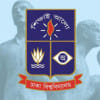
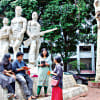
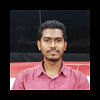


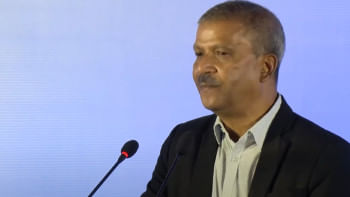
Comments